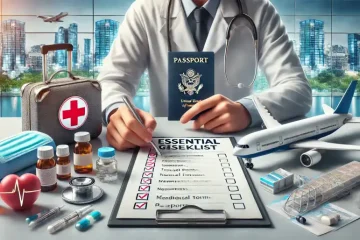Struggling with substance abuse is a silent battle that every addict fights. However, what they fail to understand is that when the addiction goes out of control, it is almost impossible to get over it on their own. In such a situation, medical help becomes imperative. But there is a big problem with seeking medical help. Almost every treatment for substance addiction comes with a huge medical bill. This is the most common reason why most addicts choose to suffer alone rather than going for a structured treatment plan.
However, do you know that there are numerous reputable health insurance plans that cover treatment for substance abuse? For instance, Cigna insurance for addiction treatment is one of the most preferred choices for their policy’s wide spectrum of treatment plans. But for someone who has no idea about health insurance policies for addiction treatment, the entire process can be daunting. This is why the following article has been specifically curated to help addicts understand the numerous treatment plans covered by the most reputable health insurance providers for substance abuse:
How Does Health Insurance for Addiction Work?
Before you assume that every health insurance plan covers treatment for addiction, you are wrong. Not all health insurance covers substance abuse treatment. Therefore, before opting for a plan, it is important to check whether they cover substance abuse treatment in their policy. Along with this, you also need to know some insurance policies may also provide limited coverage, such as they may only cover the cost of an inpatient detoxification program and not offer any outpatient facilities. Hence, before you go for a plan, it is essential to research the coverage policy.
That said, the following section of the article discusses some of the most common treatments covered by most health insurance.
Common Addiction Treatments Covered by a Health Insurance
So, what are the common treatments for addictions that you can expect the top health insurance policy to cover? Let us find out:
- Inpatient Detoxification Programs:
Detoxification programs are medical interventions that aim to control the addict’s dependence on the substance. For instance, if an individual is addicted to alcohol, these programs are designed to assist them in practicing complete restraint, which will ultimately lead them to achieve complete sobriety.
However, detoxification is not as simple as practicing restraint. When the addict suddenly stops consuming alcohol, they start experiencing withdrawal symptoms, which can sometimes be life-threatening. To successfully control these symptoms, inpatient detoxification programs offer medicines and therapies that enable the addict to control their symptoms under 24/7 supervision.
- Outpatient Detoxification Programs:
Many health insurance plans don’t cover outpatient detoxification programs. However, when you have a reputable policy in place, you can rest assured that enrolling in an outpatient program will also be covered by their policy.
Although these programs don’t require the patient to stay in the rehab facility and are less of a financial burden compared to inpatient programs, they can still add up to a huge medical bill. Here, you need to know that outpatient programs are generally recommended to people who have mild to moderate addiction symptoms, which can be easily managed without 24/7 assistance.
- Therapies for Addiction:
The emotional aspect of addiction has different components. Although the ultimate reason for addiction boils down to one’s willpower, when a professional addresses the issue, they need to break down the treatment for addiction into different parts. One part is therapies that consist of different types, such as cognitive behavioral therapy, family therapy, dialectical therapy, assertive community treatment, and much more. The cost of all these treatment procedures can sum up to take a huge financial toll. But fortunately, when you have reputable health insurance in place, this is not the case.
Conclusion:
Being addicted to a substance of any kind comes with a lot of financial strain. On top of that, when you opt for a treatment plan without a health insurance, the problems just add up. This is why it is important to choose a plan that covers a comprehensive range of treatment plans for addiction. Moreover, you must also check if the plan covers dual treatment for coexisting mental health issues as well. Doing so will ensure that you are able to take a holistic approach that focuses on your overall development, along with helping you recover from substance abuse.
Also Read: How to Manage Cravings During Cocaine Addiction Recovery



